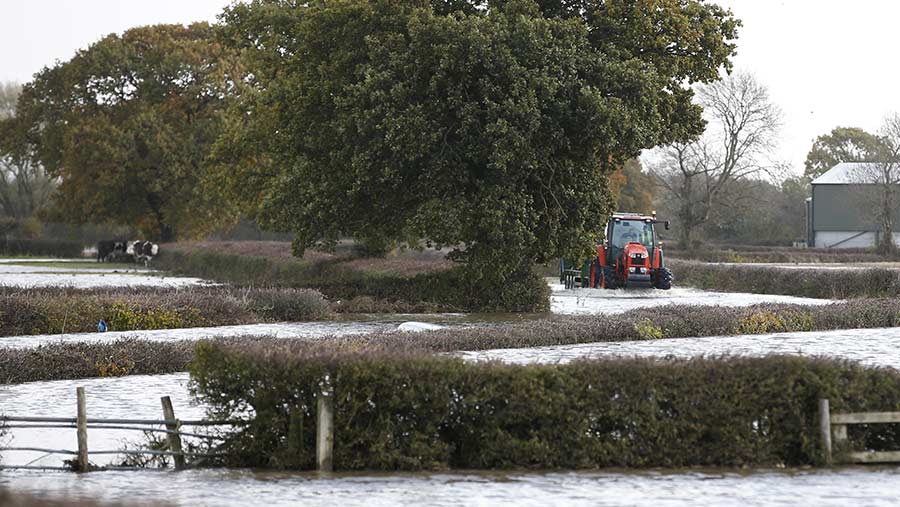Opinion: A raft of measures is needed to deal with flooding
 © Xinhua/Shutterstock
© Xinhua/Shutterstock Extreme weather and rising sea levels with resulting flooding are becoming a yearly occurrence across the UK. To have your home or farm flooded can be soul-destroying and financially disastrous.
Sadly, the residents of Wainfleet and Fishlake have joined those of Boston, the Somerset Levels and others in having this dreadful experience.
See also: What government must do to help flood-hit farmers
These recent events, together with the predictions for climate change, suggest we can expect more of the same in the years ahead.
Next month we will see a new government take shape and it should reassess the arrangements for the country’s flood defence management.
In particular, it should introduce long-term investment in response to climate change, leading to a sensible and sustained balance of capital and revenue funding for flood defence works.
There should also be closer co-operation between statutory flood management authorities, landowners, farmers and other interested groups to reduce flood risk, such as the recent Wrangle Sea Banks project, supported by Roythornes.
A move to total catchment management will also empower those who manage water in an area, involving the Environment Agency, Internal Drainage Boards and their community bodies.
The introduction of Sustainable Drainage Systems under Schedule 3 of The Flood and Water Management Act 2010 will ensure future land development is carried out in a manner that can cope with the demands posed by a changing climate.
Post Brexit, there also needs to be a resilient regulatory framework for the water environment, with clear policy that delivers environmental improvements.
And while the Environment Agency should be tasked with protecting urban areas, responsibility for rural areas should be passed to further empowered Internal Drainage Boards and other local community bodies.
These organisations should have the resources they need to protect their areas, in partnership with local landowners and farmers.
Drainage rates should apply to all rural land, including upland catchments, and drainage boards should be allowed to increase their rates to cover the cost of meeting the challenges that lie ahead.
The government should also look to strike the right balance between protecting the environment and protecting those whose who live in it. Common sense must prevail.
Lowland rivers and drains should be dredged, regularly cleaned of obstructing plant life and maintained to enable them to cope with the volume of water in extreme conditions.
Sea defences should also be improved against the predicted rise in sea levels.
Finally, burrowing wild animals in the sea and river banks are a threat to their structural integrity, so those who own and maintain these features should be authorised to manage these animals in a cost-effective and practical manner.
With the general election looming, everyone should take the opportunity of lobbying parliamentary candidates to ensure these and other measures are implemented.
Simeon Disley is a partner at Roythornes Solicitors and head of the firm’s water and flood management team
